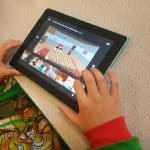Online Behaviour and Cyberbullying
1.4
The Citizenship strand is slightly different from the other three in that it focuses as much on information as it does on skills. There are also Online Safety year-by-year schemes of learning created by South West Grid for Learning on behalf of the Welsh Government which cover much of the Citizenship strand. This resource can be found on Hwb (link below)
We therefore restrict ourselves in the Citizenship strand to a few quick suggestions for activities, focusing on those few aspects of Citizenship not covered by the SWGfL schemes.
Activity Suggestions
This element in Year 6 is thoroughly covered by the SWGfL Online Safety Resource for Wales.
- Lesson 2, Year 6 - Super Digital Citizen
- Lesson 4, Year 6 - What's Cyberbullying?
- Lesson 2, Year 5 - Digital Citizens Pledge
Here are some additional activity ideas and discussion points you can use:
- Remind them of the importance of being civil and respectful online. Discuss how cyber-bullying can be worse than physical bullying as the victim can't escape it even at home. Cyber-bullying reaches them everywhere, at any time of day.
- Discuss internet trolls, how some people take pleasure in being mean to others online. Any public sharing is likely to attract trolls and we therefore need to consider how to protect ourselves.
- Only share privately, most sites have privacy settings to keep out strangers.
- Turn off comments. (You will notice that many YouTube videos have comments turned off.)
- Block abusive users - less useful as it's a reactive measure
- Keep reminding them of the importance of reporting any abusive or inappropriate content or messages to an adult.
Although not a part of the Framework for Year 6, it's important to regularly remind pupils of the dangers of over-sharing online. Lesson 1, Year 6 of the SWGfL learning scheme, 'Talking Safely Online' will help you teach this point.

